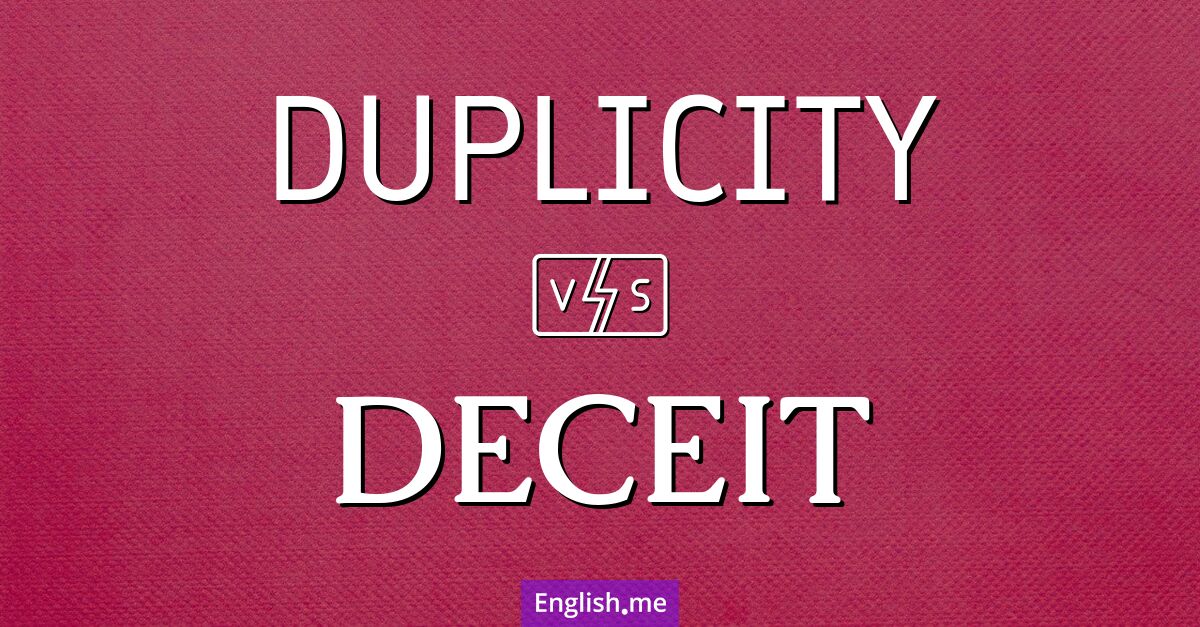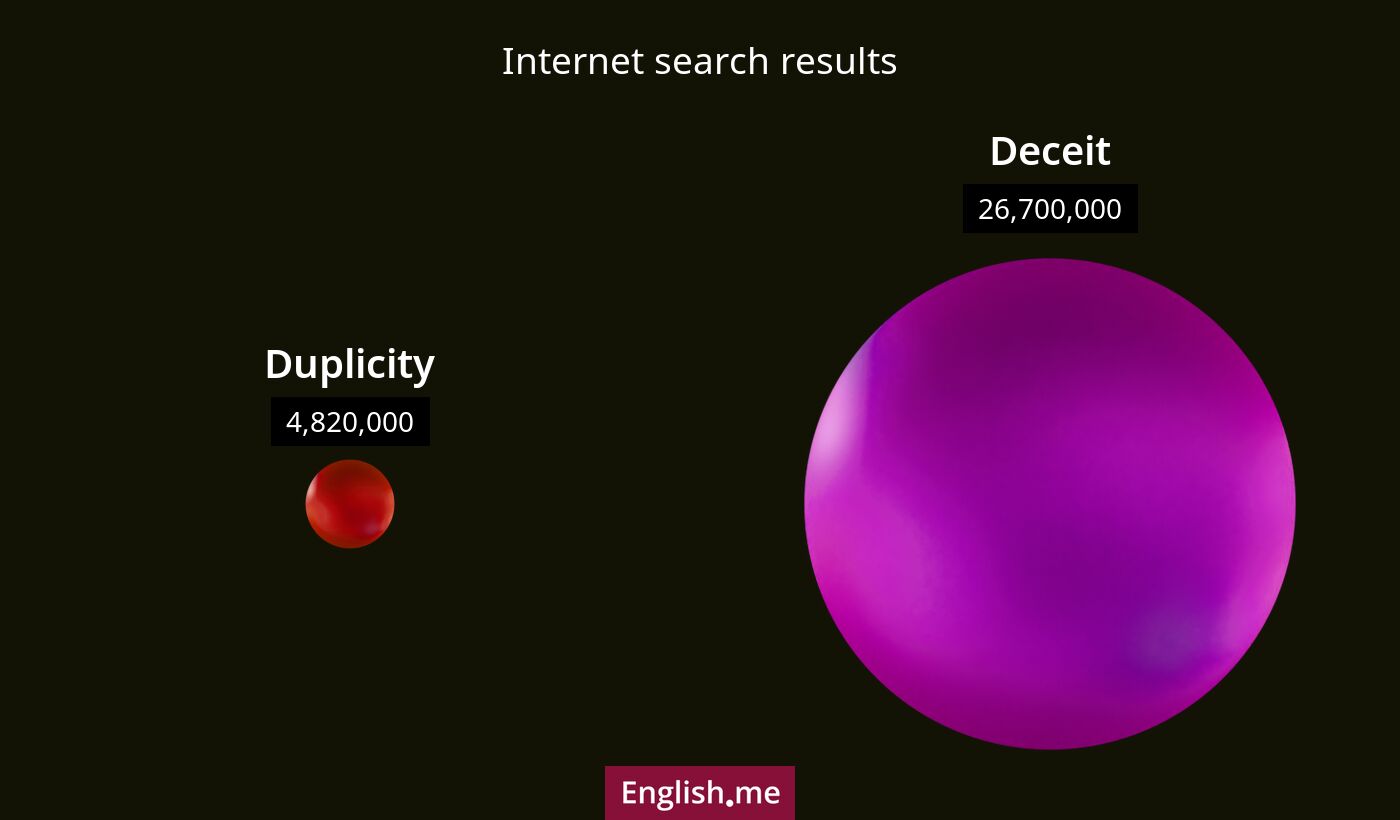"Duplicity" and "deceit": shades of deception
Reviewed and edited by  Lloyd Cooper 05/12/2024, 08:42
Lloyd Cooper 05/12/2024, 08:42
English.me team member

 What is similar?
What is similar?
Both "duplicity" and "deceit" refer to acts of dishonesty and deception intended to mislead others.
 What is different?
What is different?
"Duplicity" specifically denotes deceitfulness by acting in two contradictory ways towards different people about the same matter, emphasizing double-dealing or being two-faced. "Deceit" is a broader term that refers to any act of misleading or deceiving someone, without necessarily involving contradictory behavior.
 Which one is more common?
Which one is more common?

 Examples of usage
Examples of usage
Duplicity- The executive's duplicity was exposed when confidential information was leaked to competitors.
- She couldn't trust him anymore after discovering his duplicity in handling the negotiations.
- The spy's duplicity made it difficult to determine his true allegiance.
- His deceit was uncovered when the stolen goods were found in his possession.
- She was hurt by his deceit after learning he had lied about his past.
- The company's deceit led to a loss of consumer trust and a drop in sales.

 English
English español
español française
française italiano
italiano deutsche
deutsche 日本語
日本語 polski
polski česky
česky svenska
svenska Türkçe
Türkçe Nederlands
Nederlands